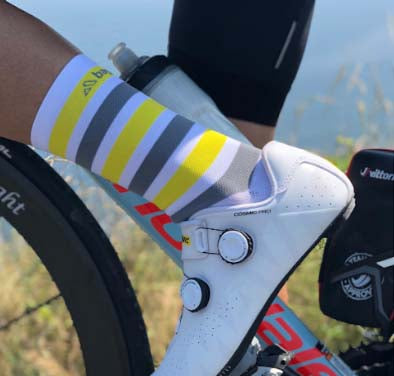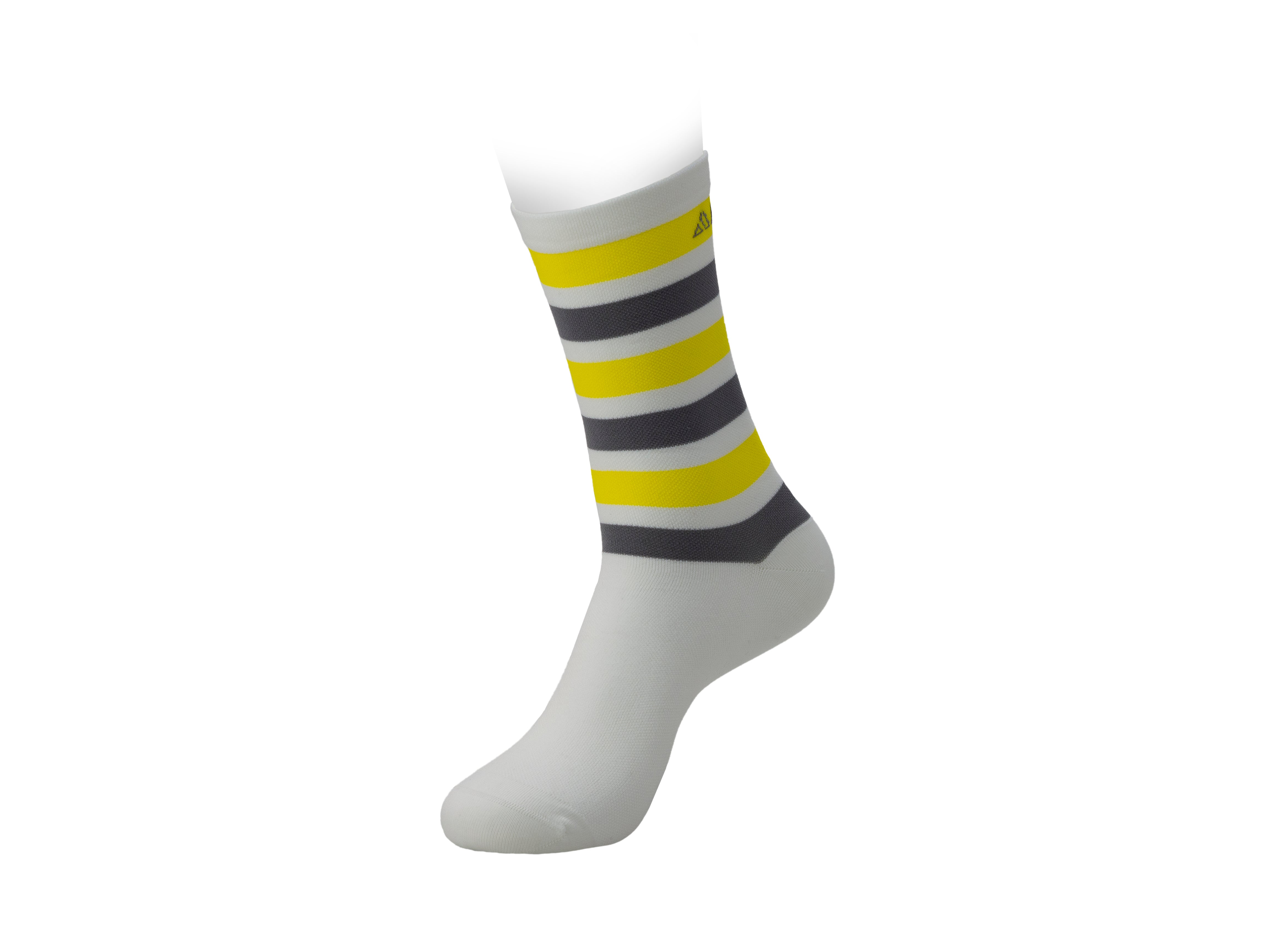Basque fans
FANS. In capital letters. That's what the Basque fans are like. A sentiment largely lost with the end of its flagship team, Euskaltel-Euskadi. That team, with its distinctive orange color, dyed the roadsides of major and minor races on the world calendar. The Basque fans don't care whether we're talking about the Tour de France, the Itzulia, or the Clásica Villafranca de Ordizia. They're always on the front foot. That's why they're considered one of the best in the world. That's why cyclists revere them.

Obviously, cycling's deep roots in Basque culture are not comparable to what you can experience in Belgium, where cycling is a religion, the flagship sport. In the Basque Country, football trumps cycling, that's the reality, but this doesn't obscure the strong health of cycling, which can be seen in every race, from the youth categories to the professional level. There's always someone cheering from the sidelines.
And what drives so many people to experience the essence of cycling up close? The answer isn't easy, but what is certain is that the feeling of experiencing and feeling the effort of the riders in person is captivating. Anyone who has experienced a stage or a classic firsthand knows what I mean. And for those who haven't, I highly recommend it.

Photo: Amaia Zabalo
It all begins as if it were a ritual, with the corresponding pilgrimage to that point chosen in each person's mental framework. The toughest slopes are usually the ones that attract us the most. Many, on the other hand, prioritize the views over the toughness. Others choose the solitude and their "txoko" (a small corner of the hill), to enjoy with a group or family. Personally, if I can combine a challenging slope with good views so I can see more of the race, I combine it. That's my favorite spot.
Although it's logically usually the most sought-after. For that very reason, it's usually the place where the most atmosphere builds. What we all share is the enjoyment of the race passing by. Feeling it like the party it is. And then, let's get down to business. How do you experience the arrival of the race? First, you enjoy the flood of cycle tourists who decide to go watch the stage by bike. There's always someone who dares to do a wheelie, someone who sprints uphill, someone who has to dismount... All of this serves to liven up the tense wait. And when the moment of truth approaches, the moment of seeing your idols in the flesh—or rather, skin and blood, in the case of cyclists—the atmosphere changes...

Photo: Juan Lazkano - Deia
The sound of helicopter propellers appears as a welcome addition. That mass of racing cars and motorcycles paving the way for the peloton. Tension. They're coming! There's always someone on the radio broadcasting what's happening. Usually, the message conveyed to the surrounding listeners is vague; no one understands what's really happening, but the desire to see them pass by increases. That deafening clamor that quickly increases, like a prelude to what you're about to witness in a few moments. The shouting increases exponentially. The corridor of people in front of you closes in. All you see is heads, with caps, helmets, and other accessories looking in one direction. And suddenly, the corridor opens. Just enough to let the cyclists pass. Just enough to convey everything you feel in those tenths of a second. Some just stare, others literally go crazy (I include myself in this group), others applaud. Noise and silence at the same time. Goosebumps. Excitement. That's what it's all about. And the Basque fans are distinguished by all of this. In addition to applauding the first and last riders equally. Values. A hallmark. Politeness. Something we unfortunately see starting to be lost in our beloved sport, especially in France. In the Basque Country, people don't race alongside cyclists. They respect them. And they know it.
If I have not managed to convey what it feels like to receive the arrival of the mythical multicolored serpent In the Basque ditches, this video by Paul Ortuzar serves as an example:
https://youtu.be/J9QjYaiyBhc
Many runners have publicly declared their love for the Basque fans. Former German runner Jens Voigt, for example, who achieved several stage victories in the Basque Country, sent this letter of thanks near the end of his career:
This letter goes out to all the Basque fans, who are always there for us.
[…]
The first time I was fortunate enough to experience the passion and fairness of Basque fans. It was a cold and rainy day, yet many of them watched the stage finish live, and a large number stayed for the podium ceremony. This was the moment my love and respect for the Basque Country and the people who live there began.
[…]
I remember when I had the best climber's jersey in the '98 Tour, but only for a day because I crashed twice on the first stage in the Pyrenees. I barely made it to the finish line and lost it, but the Basque fans, once again, supported me and encouraged me all the way to the finish. The mountains were covered with their flags and orange jerseys.
[…]
Throughout my 14 years as a professional cyclist, I've always seen Basque fans as the most passionate and loyal fans in cycling. Sometimes it seems like they're almost crying, "Come on! Come on!" and "Go on! Go on!" I've never had any problems. There's always room for riders to pass. They never boo anyone. Always fair and passionate. I've never seen a Basque fan cause trouble, block the road, or do anything stupid. You are fans filled with passion for this sport—the most loyal, knowledgeable, and passionate fans. You understand and appreciate the hard work we put into our sport.
[…]
As always, they were there. Whether it's 5 degrees, snow, or rain, they're always reliable and ready to lend a hand when you're in need. [..]
MILA ESKER! JENS VOIGT, April 2011
Little more can be added to what Jens Voigt told us. The German perfectly expressed that reality. A reality about a fan base searching for a new role model after the void left by the Oranges.
The Euskadi Foundation continues and will continue to strive to return to the world's elite, now led by Mikel Landa. Euskadi Murias is also trying to be that benchmark and seems likely to be the most attractive club for Basque fans today, keeping a distance from what Euskaltel Euskadi represented. Caja Rural is trying to do the same, but like Euskadi Murias, it is struggling to engage fans at that level. Three local teams, seeking to satisfy the same audience. The efforts of all three are certainly appreciated. It is greatly appreciated.
Let's hope we can recapture that global adventure that made the Basques dream of the Tour, the Giro, the Vuelta, and ultimately, the achievement of great successes for their team, their home team, at the world level. Let's hope someone is willing to finance the dream of an entire cycling fan base. In the meantime, the Basques will continue to cheer on each and every member of the peloton, and they will continue to savor the essence of cycling on the roadsides, because they love this wonderful sport.
An article by Mikel Ilundain for Baggicase.
